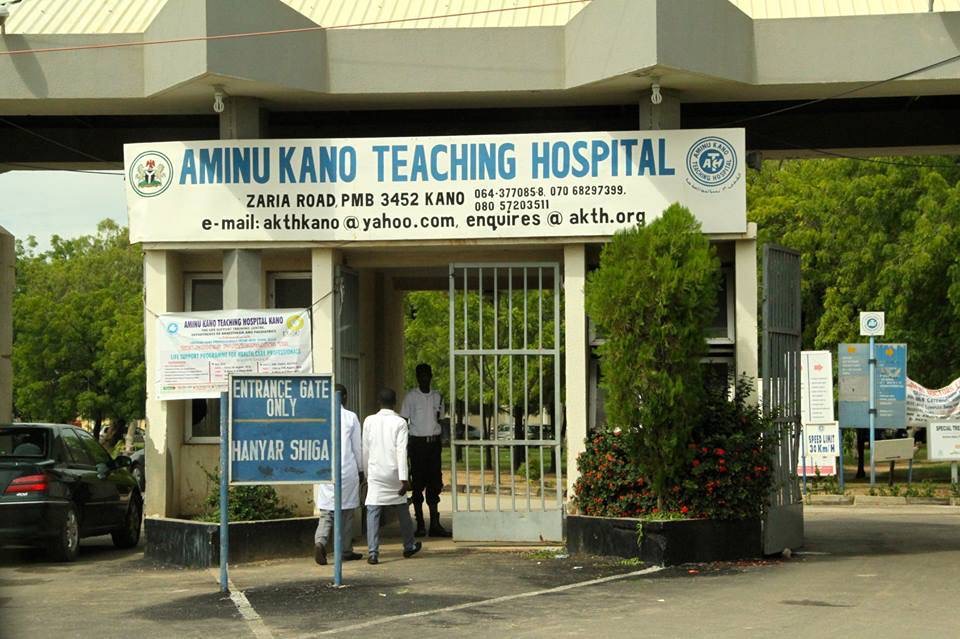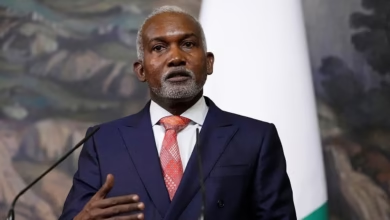
By Salisu Na’inna Dambatta
As the country grapples with the second surge of the Covid-19 pandemic and Lassa fever, the Aminu Kano Teaching Hospital (AKTH), has pioneered the use of clinical graded maggots to treat chronic wounds that often lead to the amputation of limbs. The procedure is called Maggot Debridement Therapy (MDT).
It was an ancient process that is rediscovered by Medical Entomologist for the benefit of humanity. And it is now heart-warmingly available in Nigeria.
The maggots are applied to the wounds that develop mostly in patients that have underlining ailments, such as diabetes and vascular diseases. According to WebMD, “The maggots clean the wounds by consuming all the dead and infected tissues, without hurting healthy tissues. They also help fight infection and speed healing by releasing chemicals that kill bacteria.”
The use of specially breeded selected species of larvae in laboratory to treat stubborn sores at the Aminu Kano Teaching Hospital, which pioneered it in Nigeria, is by Dr. Mustapha Ahmed Yusuf, a Medical Entomologist who completed a PhD program in 2020 from abroad.
Dr Mustaph noted that the Aminu Kano Teaching Hospital in Kano is the model and pace-setter for maggot therapy in Nigeria because so far it is the only tertiary health institution in the country that has a Maggot Debridement Therapy Centre.
He added that, “Medical Entomologists work in collaboration with Orthopaedic and Plastic Surgeons in the hospital. The Orthopaedic Surgeons refer patients for maggot therapy as the final treatment option before amputation; and Plastic Surgeons conduct skin graft when the wound debridement is achieved, thus it is a complimentary role in patient care.”
By December 2020, Dr. Mustapha Ahmed Yusuf has successfully treated and discharged 30 patients who had chronic wounds on Maggot Therapy at the Aminu Kano Teaching Hospital Kano. This record which was achieved within a year, is likely to be broken in the coming months as more patients become aware of the proceedure and seek treatment in the teaching hospital.
Dr Mustapha emphasised in the interview that “Maggot Therapy as a process of debridement /disinfecting of chronic wound achieves quick healing rate and reduce extended hospital stay. It is a standard treatment process being practiced in the developed nations and some African countries for patients with chronic wounds such as diabetic ulcers osteomyelitis andnecrotising fasciitis.”
He said that for years the United Kingdom and United States of America have approved this method because it is a simple bed-side procedure in which patient don’t have to be taken to the theatre to undergo surgery, and that even patient with electrolytes imbalance can be treated using maggots therapy.
Indeed, writing in an edition of the Journal for Diabetes Science and Technology, Dr. Ronald Sherman of the BioTherapeutics, Education and Research Foundation, California, United States of America pointed out that, “The medical literature is rapidly growing with scientific evidence demonstrating the efficacy and safety of maggot therapy for a variety of problematic wounds.”
“Dr. Sherman added that, “Diabetic foot ulcers alone are so common, affecting approximately 15 per cent of the diabetes patient population ( in the USA) that they account for over 1.5 million foot ulcers and at least 70,000 amputations annually.”
He wrote further, “While technological advances have led to significant improvements in medical care, including wound care, nonhealing wounds still remain a significant problem. The annual cost of management for these wounds exceeds $20 billion. Worse yet, the prevalence of nonhealing wounds is on the rise.”
In an article on “Extremity Amputation in Nigeria – A Review of Indications and Mortality,” Dr. O. A. Thanni and A. O. Tade of the Olabisi Onabanjo University, Sagamu, discovered that “the most common indication for amputation in Nigeria is trauma, complications of TBS, malignant tumours, diabetic gangrene, infections and peripheral artery disease. The uncommon causes are snakebite, congenital malformation, ainhum and chronic ulcers. “
With the introduction of Maggot Debridement Therapy in Nigeria by the Aminu Kano Teaching Hospital, Kano, under the watch of the Chief Medical Director, Professor Abdulrahnan Sheshe, there is hope that many Nigerians afflicted by ulcerous and gangareous wounds, sores and snakebites can be saved from such extremity amputation of their affected limbs.





